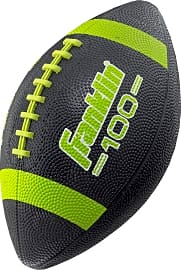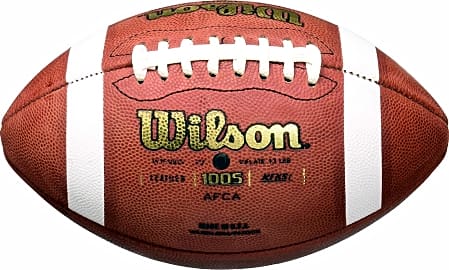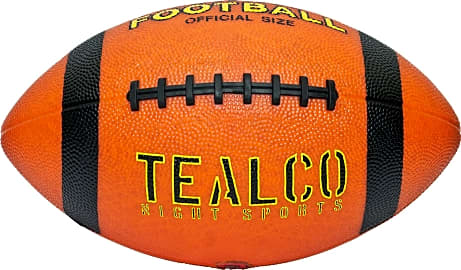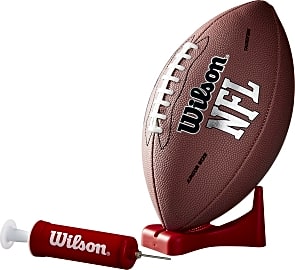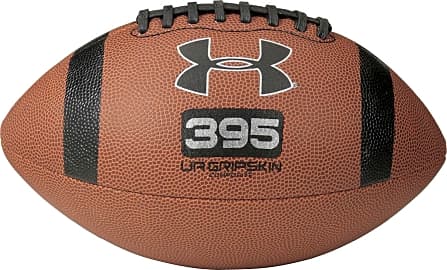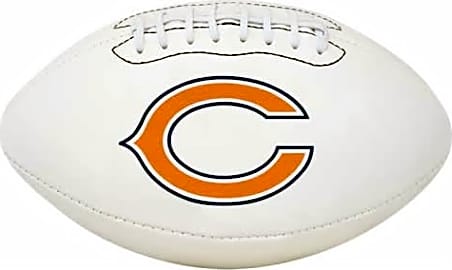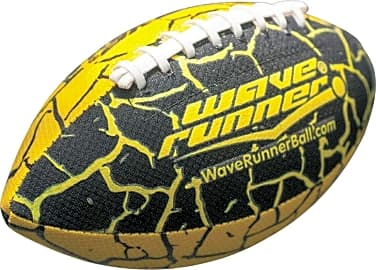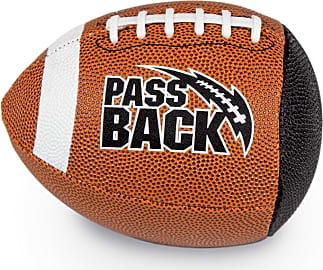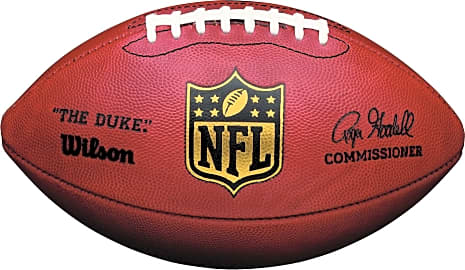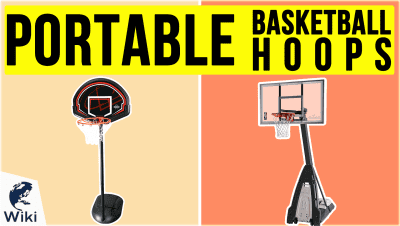The 10 Best Footballs

This wiki has been updated 39 times since it was first published in October of 2015. Few things in life are more enjoyable than lofting a perfect spiral through the air. Whether you play competitively under lights or just for fun down the street, one of these footballs will be the right match for your needs. We've included many options worth looking at, from smaller choices best suited for younger kids to pro-sized pigskins ideal for high-level games and practices. When users buy our independently chosen editorial recommendations, we may earn commissions to help fund the Wiki.
Editor's Notes
November 11, 2020:
Fans of the game won't be surprised to see options from Wilson here, including the popular Wilson Super Grip and the Wilson NCAA, both high-quality choices for casual and even some serious play. And Wilson's The Duke remains on the list, as well, despite its high cost; it's made to high quality standards, unlike some "no name" balls that leak and are too easy to damage.
As for changes, we removed the Nike Vapor 24/7. For casual play, the Franklin Sports Grip-Rite 10 or the Under Armour 395 work just as well, so there's just not enough to distinguish this Nike model. Instead, we selected the Wave Runner Grip It, since it does offer something distinctive, in that it's made for use in the water. Of course, this won't do you any good if you're stuck in the snowy Midwest or Northeast during the winters, but for summer and vacations, it could liven up your outdoor activities.
We also elected to remove the Rawlings Gridiron Youth and replace it with the Rawlings NFL Signature Series. Both are better for display than play, and both could certainly make an eye-catching gift for a fan; however, the Signature Series lends itself to becoming a truly one-of-a-kind display piece, since it's designed specifically for autographs. It even comes with a Sharpie, although you'll need to provide your own display case.
June 28, 2019:
Removed the Wilson TDS, as recent changes to the design have reduced its durability, making a once-fantastic ball into something merely pedestrian. In its place, we added the Wilson Super Grip, which, while not suitable for official games, is fantastic for recreational use, and even allows novices to throw the occasional spiral.
The Spalding Never Flat was also removed. While it's durable and holds air well, it does so at the expense of usability. The slick, rubbery feel made it hard to throw accurately, not to mention catch. We felt that having a durable ball you never wanted to actually throw defeats the purpose.
Two official balls, the Wilson NCAA and Wilson's The Duke, made the list. Both are on the expensive side, and both require a little more TLC than your average ball. The NCAA is easier for the average player to use, which is why it ranked so much higher than its professional counterpart. The Duke is perfect for collectors, though, so if you're planning on trying to get Patrick Mahomes's autograph at training camp, you can rest assured knowing his signature will stay nice and pristine on its premium leather hide.
Special Honors
GateXXI Handmade You'll never lose track of which ball is yours when you bring this throwback option to the game. The dark premium leather is both durable and attractive, so you're sure to be invited back the next time a round of two-hand touch breaks out. etsy.com
Wilson Weight Training If you're trying to build up the strength for a length-of-the-field Hail Mary, this ball is a good place to start. It weighs 20 ounces, so it's not overpowering, but you'll still see a noticeable difference in your arm strength with extended use. wilson.com
Shinola Leather Football The makers of the Shinola Leather Football claim that this is an heirloom-quality item, and because of its attractive, high-quality leather and fine craftsmanship, it's hard to disagree. It's offered in two colors, medium brown or royal blue, and although it's expensive, it's built for the long haul. shinola.com
A Brief History Of Football
From there, football continued its rise in prominence, eventually overtaking baseball as the most popular pastime in America.
Americans have a long history of taking a tradition from England and changing it into something slightly different, then loudly proclaiming our new version to be vastly superior. So it is with American football.
The sport's origins trace back across the pond to rugby and something known as "mob football." In both sports, a large scrum of large men attempted to move a ball from point A to point B while another scrum of large men attempted to stop them.
As you might expect with any game in which there is a high likelihood of someone getting mangled, these sports were quite popular on American college campuses. Students at universities like Yale and Princeton participated in these games quite frequently.
This burgeoning game had just one minor problem (well, two, if you count all the students getting mangled): each university had its own version, and the games could differ wildly from campus to campus.
The first steps towards unifying the sport came in 1869, when Rutgers played Princeton in a match of "roundball." The Rutgers team captain suggested rules that were accepted by both sides, and thus the first college football game was played. Of course, this one involved 25 men per side, each desperately trying to kick the ball into the other team's goal, but close enough.
Four years later, representatives from multiple northeastern schools (except — you guessed it — Harvard) met in New York to discuss further codifying the rulebook. Harvard continued to play by its own regulations until it faced a team from Montreal's McGill University, at which point its players discovered they quite liked this new brand of American football that was brought to them by a team from Canada.
It was a Yalie who would truly revolutionize the fledgling sport, however. Walter Camp proposed multiple changes, including limiting teams to 11 players per side, establishing a set line of scrimmage, and creating the down system.
College football caught on like wildfire, with schools all across the United States fielding teams. The first professional contest, meanwhile, would be staged in 1892, and the NFL would be founded seven years later.
For the following few decades, the popularity of the college game would dwarf that of the pros. In fact, it would take a few college stars to save the floundering NFL, as big names like Red Grange, Jim Thorpe, and Bronko Nagurski took their talents to the big leagues and brought legions of fans with them.
From there, football continued its rise in prominence, eventually overtaking baseball as the most popular pastime in America. The rules have changed quite a bit along the way (and continue to do so), but one thing will always remain true: my team is way better than yours.
Backyard Football Tips
If you just want to throw the ball around while you wait for Thanksgiving dinner to be ready, there's no need to overthink it. The important thing is to have fun with your family and friends.
If you're a true red-blooded American, however, the urge to humiliate those same family and friends in a cutthroat game of backyard football runs deep in your bones. We have some tips that will help you dominate your next competition, as your opponents will be completely unable to match your level of preparation, due to the fact that they have jobs and families.
Like any successful football team, you need to have a playbook with a few tried-and-true beauties.
Like any successful football team, you need to have a playbook with a few tried-and-true beauties. End-arounds are a smart choice, as are flea-flickers — just avoid getting too cute with a Statue of Liberty or the dreaded Annexation of Puerto Rico.
Trash talk is also your friend here (and maybe the only friend you'll have after the game's over, depending on how far you take it). Don't let anyone off the hook. Did Grandma burn the beans? Remind her of it — and then burn her on a deep route.
Also, if you really want to take things to the extreme, consider getting into reasonably sound cardiovascular shape beforehand. It's sure to give you a leg up on the competition.
Of course, if you're less concerned with winning and more concerned with spending time with loved ones, you can do things like investing in a flag football set so that there's less risk of someone getting tackled, making sure teams are evenly matched, and keeping your competitive fire in check.
But just remember: the real winner is whoever gets derogatory t-shirts made after the fact.
Staying Safe While You Play
While playing two-hand touch in the backyard isn't as hazardous to your health as the full-contact variety (at least until you criticize Grandma's beans, that is), you can still get hurt. To avoid being the reason your family has to eat their turkey in the ER, below are some tips for preventing injury.
You don't need any specialized gear, but make sure you're wearing sensible athletic shoes, and don't try to play wide receiver in jeans and a button-down shirt.
As mentioned above, try to be in good shape beforehand. If that's not possible, don't push yourself past your comfort level. After all, no touchdown is worth a massive heart attack.
Be sure to stretch and warm up properly before hitting the field, as pulled muscles are a great way to cut a fun weekend short. Stretch after you're done, as well, and drink plenty of water so that your muscles stay hydrated.
The right equipment is also important. You don't need any specialized gear, but make sure you're wearing sensible athletic shoes, and don't try to play wide receiver in jeans and a button-down shirt. Oh, and hopefully it goes without saying, but wear sunscreen. Yes, even if it's overcast outside.
Unfortunately, there's no way to guarantee that you won't get hurt, but if you take a few simple precautions beforehand, you can increase your chances of surviving the game.
After all, if you're going to hurt yourself at Thanksgiving, it should be from overeating, not football.


